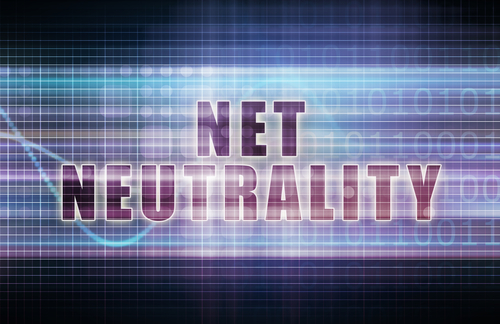 At the end of 2017, the Federal Communications Commission voted to end net neutrality. Many were outraged. Some celebrated. But I imagine most people simply didn’t know what it all really meant or how the change would impact their Internet experience.
At the end of 2017, the Federal Communications Commission voted to end net neutrality. Many were outraged. Some celebrated. But I imagine most people simply didn’t know what it all really meant or how the change would impact their Internet experience.
Let’s start by explaining the concept of net neutrality.
What Is Net Neutrality?
Communications companies regulated by the Federal Communications Commission, such as telephone companies, must follow a law that requires them to treat all calls equally. They can’t make a deal with Delta Air Lines to drop calls or provide a bad connection to American Airlines, for instance. The idea is that our communications utilities should be available to all.
Net neutrality is the idea that this should also apply to internet service providers, such as Comcast, Verizon, and AT&T. The companies should be required to treat all web traffic equally. They shouldn’t be allowed to block or slow down traffic or communication they don’t like or speed up communications for users that pay higher rates.
For example, they shouldn’t send data from Netflix faster than data from Hulu, because they have a more lucrative deal in place with Netflix. Or block people from visiting content that casts their company in a negative light.
Many proponents of net neutrality argue that, without these regulations in place, companies will have too much control over the content of information that people can access on the internet. It could prevent small start-up businesses from finding a foothold because providers would favor content provided by larger companies who can pay a premium for faster access. Similarly, internet service providers (ISPs) could limit the free speech of their consumers because of content that the ISPs disagree with or is contrary to the ISPs’ financial interests.
In fact, there have already been examples of content-based restrictions.
In 2005, Canadian telecommunication company Telus blocked access to the website run by a union that was on strike against the company.
AT&T censored the political protest of the band Pearl Jam in 2007, turning off the sound when the lead singer sang lyrics criticizing then-President Bush.
In the same year, Comcast blocked file transfers of customers using peer-to-peer networks, such as BitTorrent, where videos (both pirated and legitimate) are traded. At the time, many noted that Comcast had plans to sell videos online.
Also, in 2017, Verizon denied NARAL, a pro-choice group, access to a text-messaging program the organization used to communicate with supporters, because it did not wish to “promote an agenda or distribute content that, in its discretion, may be seen as controversial or unsavory to any of our users.”
Is This a First Amendment Issue?
These examples illustrate the power of the Internet and how lack of access can harm business or speech. Doesn’t the First Amendment have something to say about this?
Contrary to what many believe, this is not a First Amendment issue. This misconception is based on an incorrect understanding of what the First Amendment covers. The Constitution protects us from government censorship – not from private companies.
For instance, if a municipal broadband network, owned by local government, was taking steps to slow or block certain content, this would potentially be a violation of First Amendment rights. But when a private company does so, they are not violating the First Amendment.
Getting rid of net neutrality laws may not be in the public’s interest, but it’s unlikely that the courts will find they are required by the Constitution. There are federal laws that govern “common carriers” such as ISPs, but that’s where the FCC comes in with its regulations to implement those laws.
So, Will the End of Net Neutrality Impact Free Speech on the Internet?
If history serves as an indicator, it’s likely there will be more instances of private companies censoring the free speech of certain people or groups on the internet. And, as the internet has become a primary way that we communicate, this is not something to take lightly.
But the First Amendment is unlikely to win the net neutrality battle. As mentioned, private companies have the right to censor free speech based on content. Instead, it may be the marketplace that decides the net neutrality debate—it’s possible that consumers may drive change that protects free speech by walking away from companies that engage in content-based data discrimination.
Unfortunately, because cable companies and other internet service providers are regulated monopolies, most Americans have only one or two high-speed broadband options available to them and the power of competition that is available in free, unregulated markets doesn’t operate here. This could make it hard for them to switch providers in order to avoid this type of data manipulation. And since it costs millions or billions to create this type of service, it’s unlikely we’ll see a flood of start-ups in this area anytime soon.
Instead, this may end up being an anti-trust issue. Net neutrality regulations may be needed in order to protect consumers and promote competition and innovation in the marketplace. Stay tuned as the question of net neutrality is not going to disappear soon.